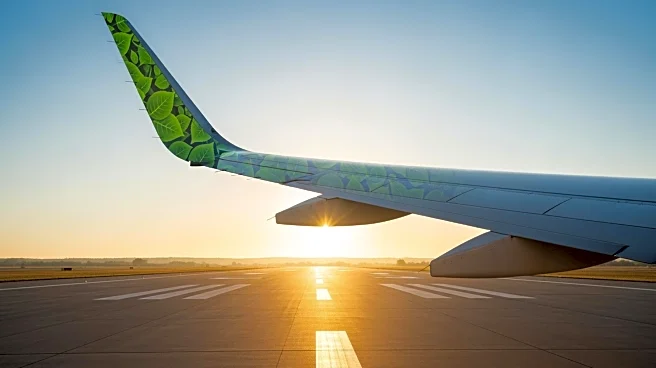What's Happening?
Singapore will become the first country to tax air travelers for sustainable aviation fuel (SAF) starting October 2026. The levy will vary based on travel class and destination, with economy passengers
flying within Southeast Asia charged $0.77, and business and first-class passengers heading to the Americas charged $32. The funds will support centralized SAF purchases, aiming for a 3-5% adoption rate by 2030. The announcement coincides with the COP30 climate meeting in Brazil, where countries are negotiating climate change measures. Despite being a step towards greener aviation, the levy faces criticism from environmental groups and industry leaders over SAF's sustainability and economic feasibility.
Why It's Important?
Singapore's decision to tax air travelers for SAF marks a significant move towards sustainable aviation, potentially influencing global aviation policies. The levy aims to reduce carbon emissions and promote the use of greener fuels, aligning with international climate goals. However, the criticism highlights challenges in balancing environmental benefits with economic impacts, such as land use and food supply competition. The initiative could set a precedent for other countries, encouraging them to adopt similar measures to combat climate change.
What's Next?
The implementation of the SAF levy will begin in October 2026, with funds directed towards centralized SAF purchases. The aviation industry may need to address concerns about SAF's sustainability and economic viability, potentially leading to further research and development. Other countries might consider similar levies, especially if Singapore's approach proves successful in reducing emissions. The global aviation industry will likely monitor the impact of this policy, assessing its effectiveness in promoting sustainable practices.










